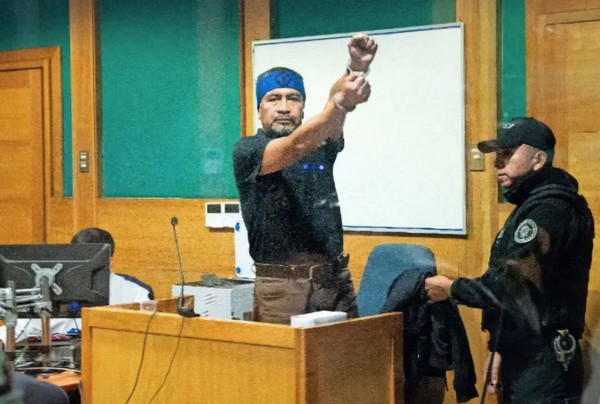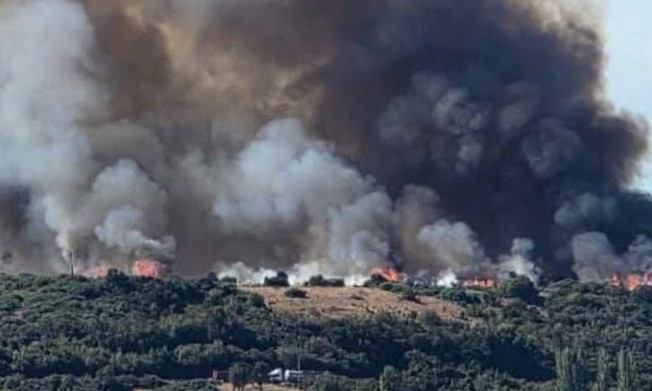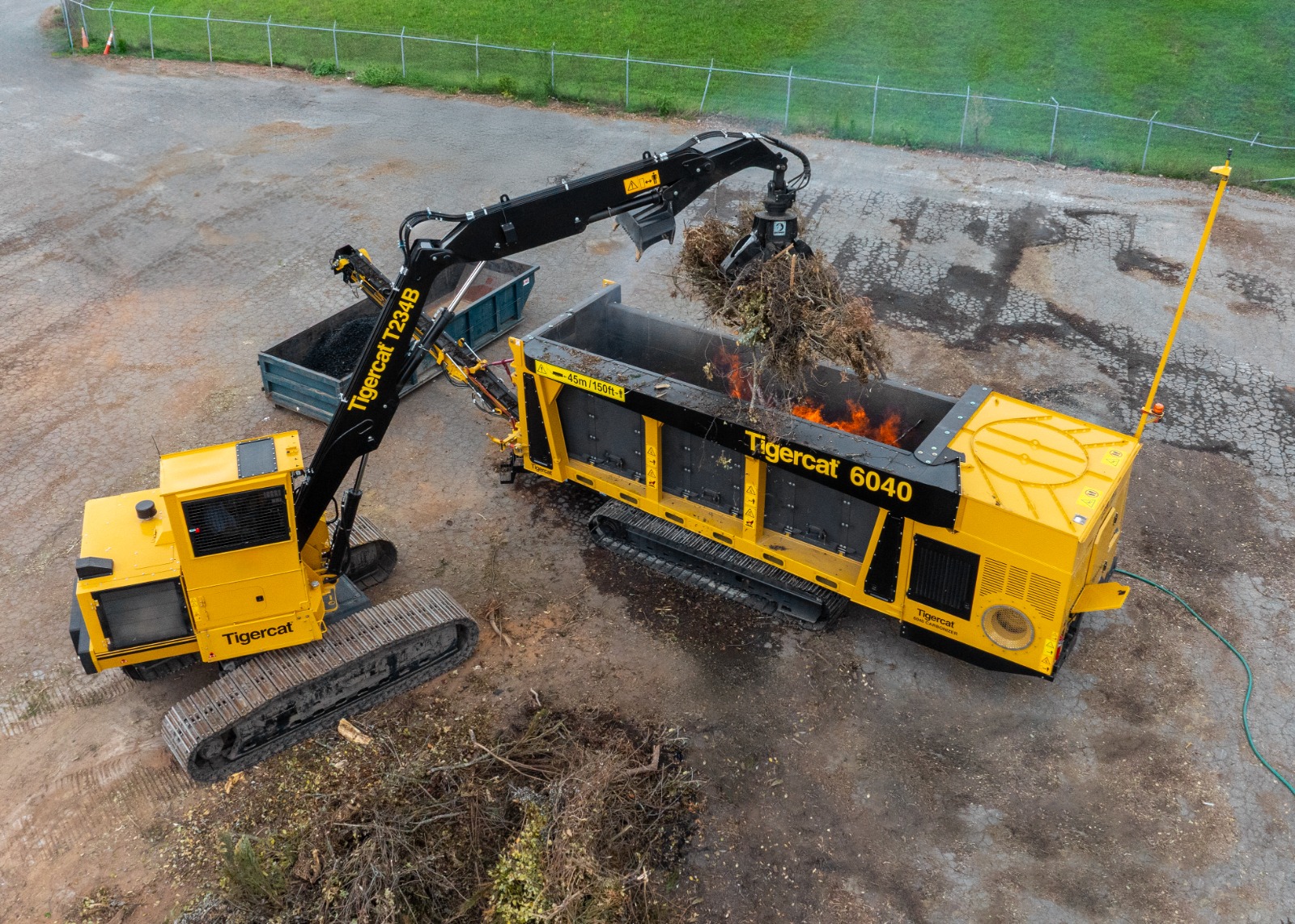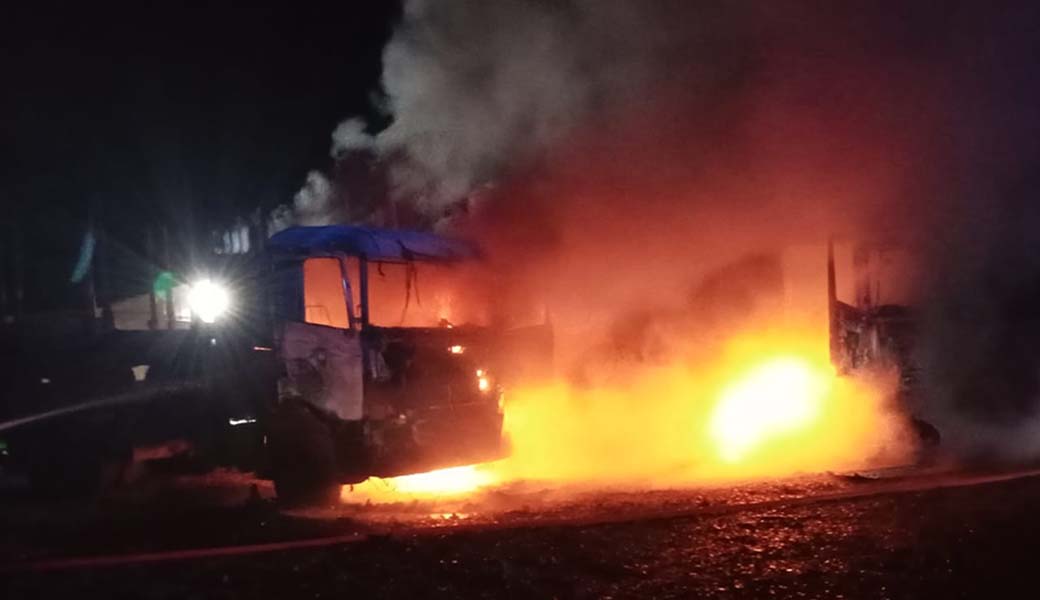New calls for confrontation with companies operating in the southern macrozone and with state institutions have been made, this time through interviews granted from Temuco prison, by convicted leader of the Arauco Malleco Coordinator (CAM), Héctor Llaitul.
The radicalized activist is serving a 23-year prison sentence precisely for crimes of incitement and glorification of violence, covered under the State Security Law, as well as for violent usurpation, timber theft, and attacks against authorities, penalized under the Criminal Code.
Among other statements, published on the portal Werken Noticias, Llaitul urged to "fight forcefully" and "with the conviction we have seen in our martyrs," while acknowledging that this "comes with costs and consequences."
Felipe Harboe, former Undersecretary of the Interior and researcher at the Center for Studies in Security and Organized Crime (Cescro) of San Sebastián University, states that "Héctor Llaitul will not change his philosophy or his way of being because of a criminal conviction." He also argues that "when any violent action occurs, we will have to examine whether there is a causal link between these calls for violence and these events, as it could constitute a crime."
State Security
Harboe asserts that a person who publicly calls for violence "affects state security, so the government must assess whether the objectives of the sentence are being met in prison, if he continues to glorify violence."
Regarding whether disciplinary sanctions or a new criminal proceeding are warranted in Llaitul's case, Harboe believes that "both can apply, because what matters is that people understand that when convicted, they are under a different regime than when free. Additionally, if a plausible connection is found between his calls and violent acts, there could be an additional criminal process leading to recidivism."
Pablo Urquízar, former security coordinator for the southern macrozone, argues that to establish potential recidivism, "it must be analyzed whether his calls from prison could resonate with CAM members in terms of inciting violence."
"One of the most relevant aspects proven in the sentence that condemned him to over 23 years in prison was that the glorification and incitement of violence were expressions that also materialized in violent acts, specifically in the southern macrozone, carried out by CAM," explains the academic from Andrés Bello University.
Regarding whether Llaitul can give interviews from prison, Urquizar clarifies that "like any detainee, he has the right to receive visits, converse, and conduct interviews."
If recent or future interviews reveal crimes under the State Security Law, he adds that "a new judicial process must be initiated, as it would constitute a new offense."
Following the latest published interview, CAM has claimed responsibility for two attacks, and Urquizar recalls that "the criminal process that convicted him last year showed that after his calls for violence, there were 54 attacks."
It is worth noting that in an investigation under the State Security Law, the Public Ministry cannot act ex officio, but rather "an investigation into crimes of incitement and glorification of violence can only originate from a formal complaint by the government," says the former coordinator.
Richard Caifal, director of the Indigenous Policy Center Rakizuam and former governor of Cautín, offers a different analysis, suggesting that "this could be a kind of strategy, linked to the intention of taking Llaitul's case to international instances," as reported by his family.
Meanwhile, RN deputy Miguel Mellado confirms sending official communications on the matter. "I ask the government to evaluate actions to prevent Llaitul from continuing to glorify violence in prison, and I remind the Prison Service that he is a dangerous inmate and cannot say whatever he pleases," he emphasizes.
Source:El Mercurio







Comments (0)
No hay comentarios aún. ¡Sé el primero en comentar!
Deja un comentario